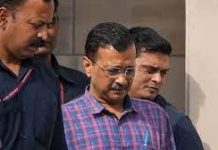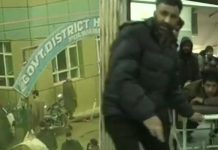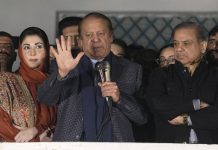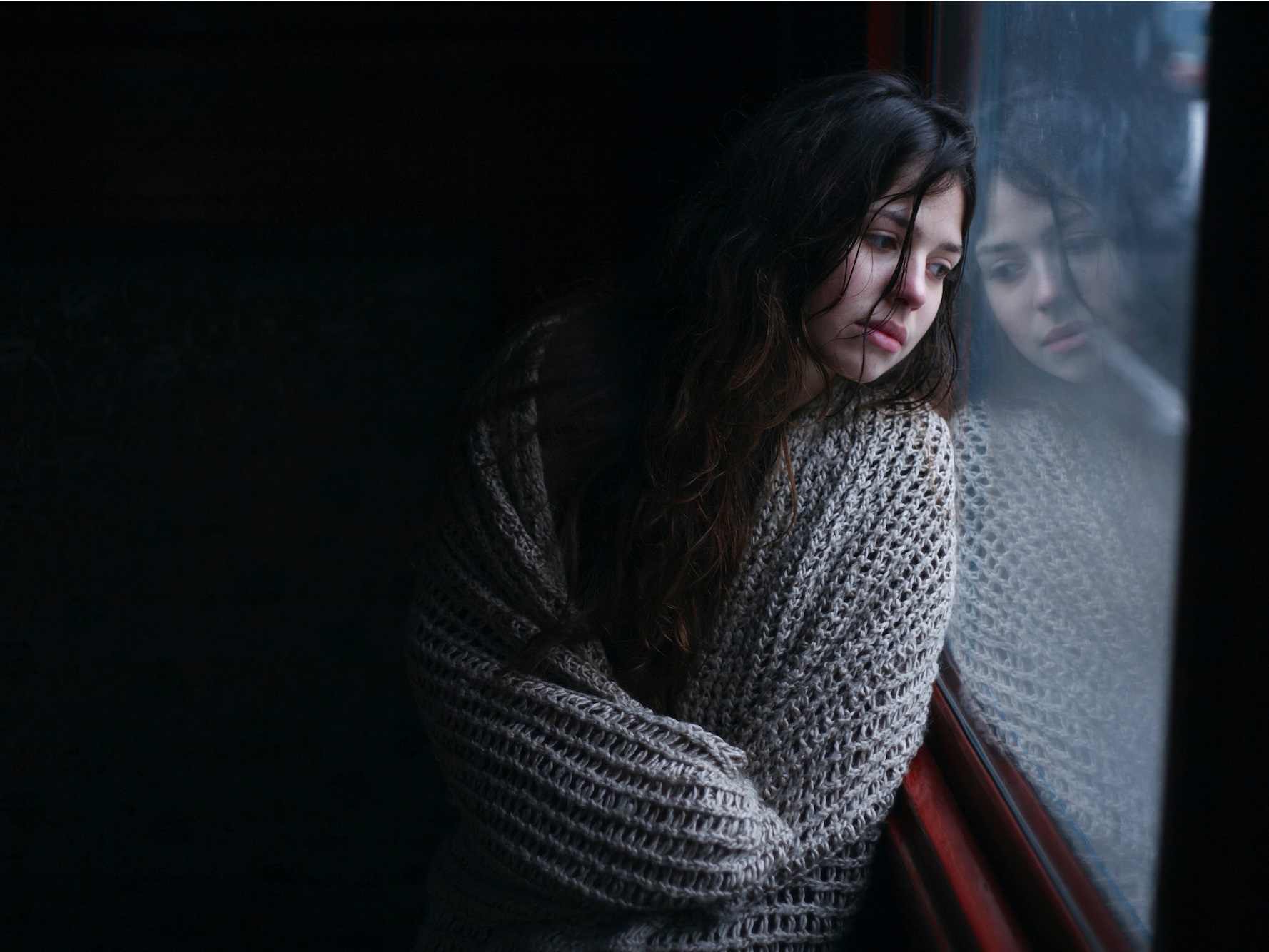
Even if a minister of Loneliness gets installed in the country, will she/he be able to reach out to the lonely Indians? After all, don’t we have ministers for the welfare of the minorities etc. But see the dismal conditions prevailing!
Strange scenario unfolding. With the corona scare and the political pollution unmoving, there’s little enthusiasm to look forward to the upcoming season of Bahaar or Spring, with Valentine’s Day splashed in its midst. Nah, it seems to be heralding little excitement. The saturation point reached, with the viruses of all hues holding sway, washing away even the faint traces of longing.
Not to overlook the communal virus consuming us, our emotions, our sensitives, our very being. Polarization on the housing front affects other fronts, including the love front! Tell me, how can Hindu-Muslim love affairs take off, when there’s little interaction, when Muslims can’t get homes on rent in Hindu dominated areas and housing complexes, when Hindutva goons hang outside colleges and universities, keeping a watch!
One news report after another of sabotaged love affairs, between Hindus and Muslims. Now, of course, the so called ‘Love Jihad’ laws, are terrorizing couples. The State flaunted divisive-cum- destructive strategy along the ‘Love Jihad’ strain, seems to be the last nail in the coffin of our collective togetherness.
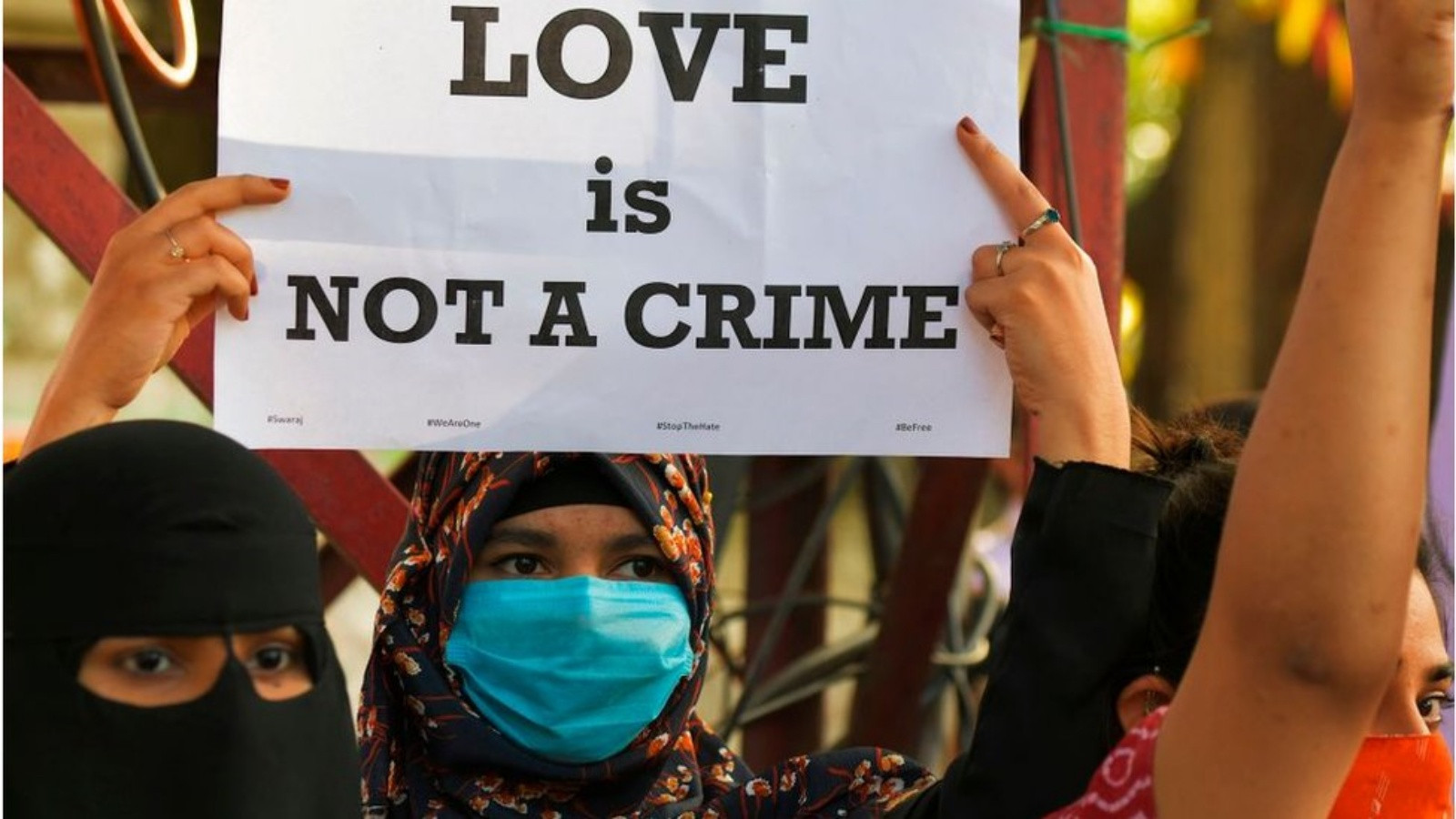
One of the biggest offshoots of this changed scenario is loneliness. One has to think a hundred times before making friends. Close or the not-so. Spontaneity hit. Worries compound, as scares of all hues and forms gather around, gaining momentum. And in the midst of it nobody even talks of loneliness!
Japan had appointed a Minister of Loneliness. As earlier news reports stated, this minister’s focus would be to combat loneliness leading to rising suicides. And if I’m not mistaken almost four years back, in 2018, UK had also appointed a Minister of Loneliness to try reach out to all those battling loneliness. Don’t know whether any lessening of the lonely, but it sure does indicate that loneliness is one of those urgent concerns of the governments of the day.
Yes, though there’s denying that loneliness could be as lethal as cancer or corona but, here, in our country we don’t want to talk about any of the emotional realities. All seems to be going all okay! Its only when the situation crosses the bearable boundaries then cries for help can be heard. Who is there to hear those cries! No one! For till date nobody gives a damn to loneliness!
If even a minister of Loneliness gets installed in the country, do you think he will reach out to the lonely Indian! After all, don’t we have ministers for women and children, and also for the supposed welfare of the minorities and also for the several other disadvantaged groups and communities, and yes also for the farmers, industrial workers and mazdoors, and above all, for the collective health of all! But see the dismal conditions prevailing all around!
The dark reality is this: lonely Indians die unsung and prematurely even in those joint family setups, yet we aren’t supposed to talk of any of these dark realities hitting us , day after day.
I can only read aloud this verse from the rebel poet of the Awadhi belt, Israr-ul-Haq Majaz. He died young and that too decades back, but not before writing verse after verse, romantic as well as revolutionary, on the situation around.
Holding out to this day is his this verse titled Awara:
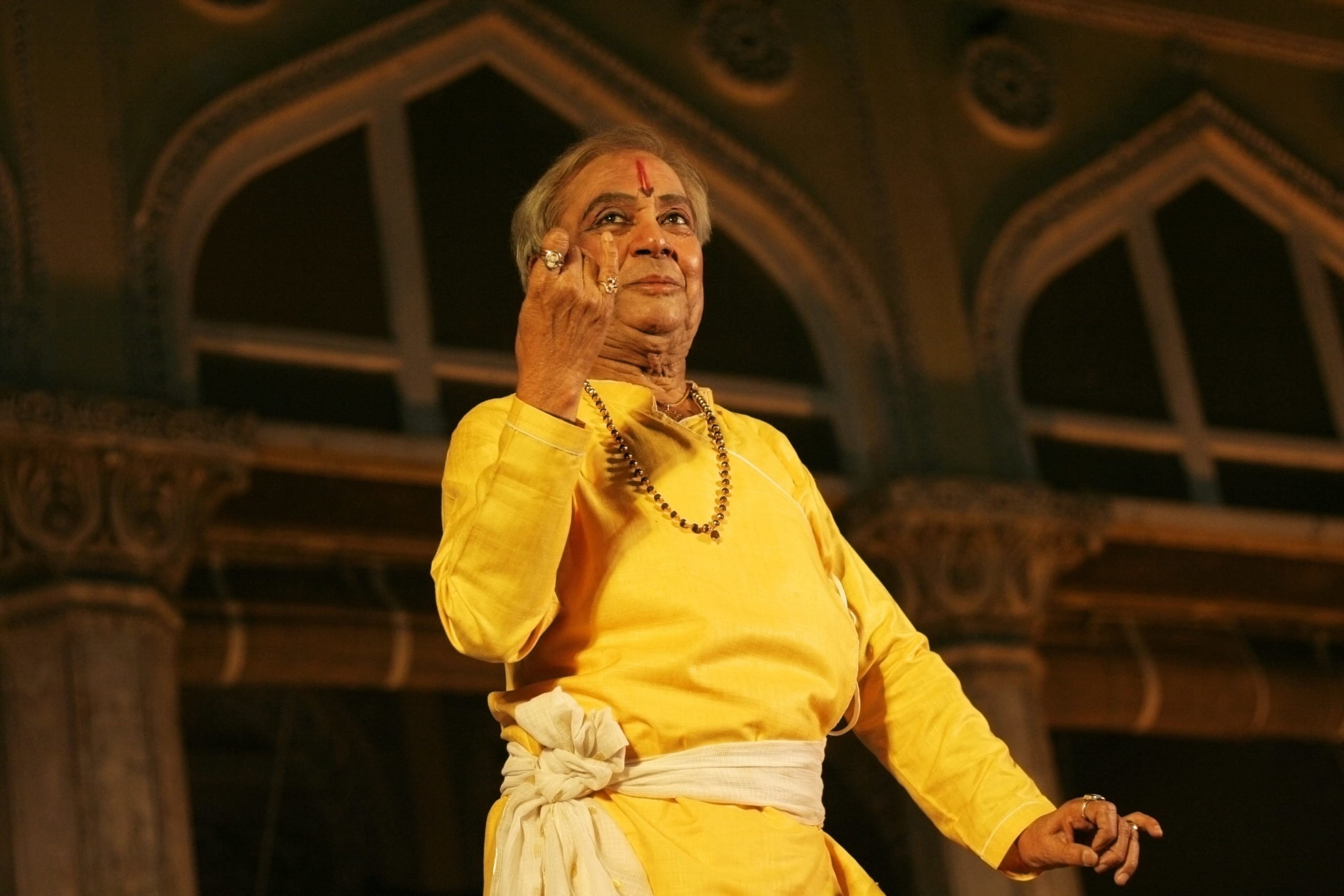
Night has fallen in the city, and I, unhappy and defeated
Roam, a vagabond on dazzling, awake streets
It is not my neighbourhood, how long can I loiter thus?
Anguished heart, desperate heart, what should I do…
To stop and rest on the way is not my habit
To admit defeat and return is not my nature
But to find a companion, alas, is not my fate.
Pandit Birju Maharaj leaves back a definite void
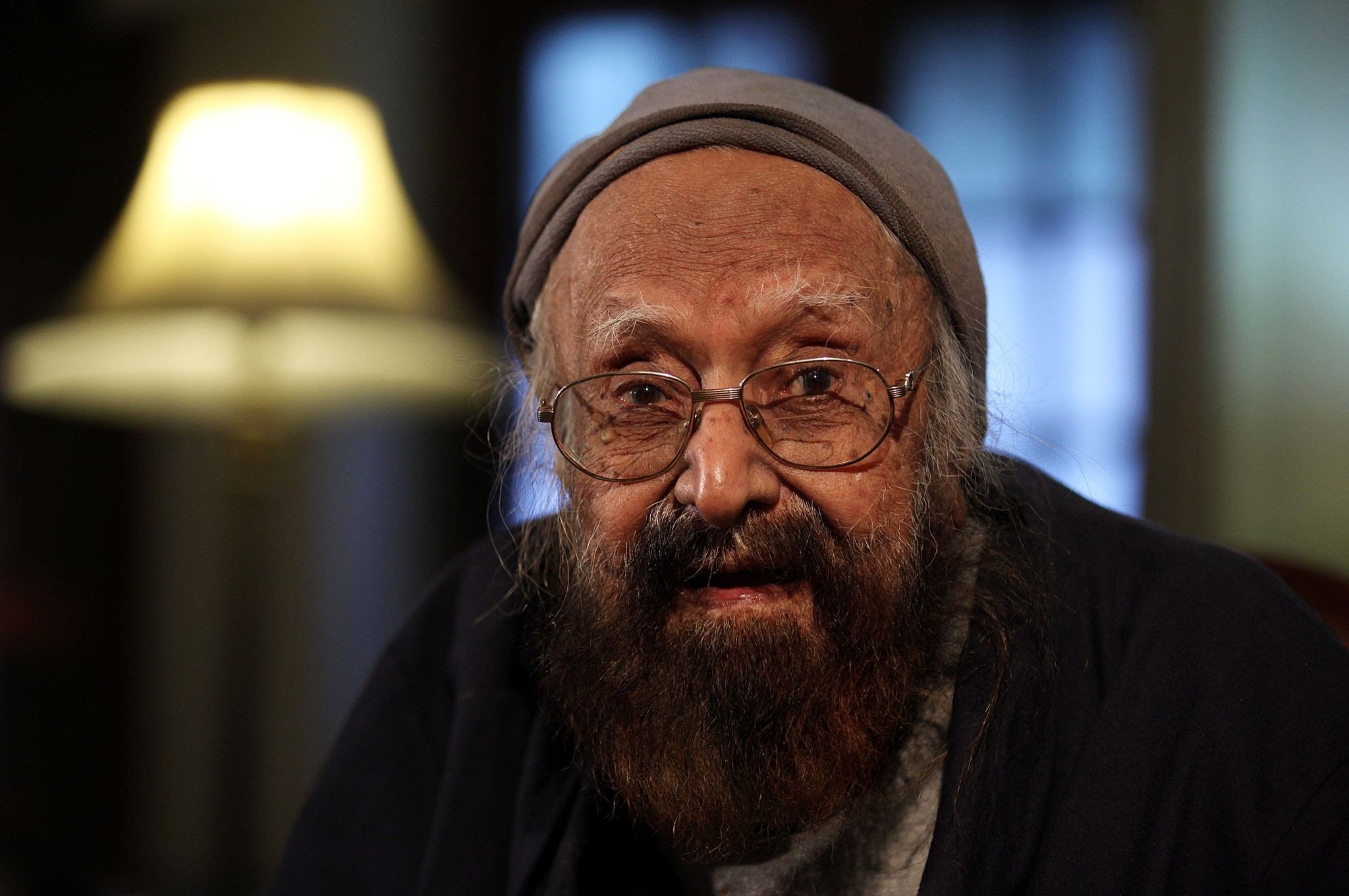
Last fortnight as soon as the news of the passing away of Pandit Birju Maharaj reached me, I was transported to the 90s, towards the Shahjahan – Pandara Road locality of New Delhi . For that’s where Pandit Birju Maharaj resided with his entire family. And not too far from his home, was the apartment where I resided. Our homes were along the adjoining lanes and very often I used to see his children and students walking around in the area. It seemed a fairly large household, along the traditional strain.
I was then covering the cultural scene of this capital city and had seen him perform and also had those brief interactions with him. And on the occasions, I could get to talk to him what held sway was his very personality. To be nearer precision, the manner in which he spoke. It was pure bliss to hear him narrate situations and happenings in that relaxed Awadhi style. There was no rush of words, no usage of the rough slangs. He spoke out spontaneously and effortlessly, in that Dastangoi style. In fact, the expressions on his face and eyes added to that flow …At times one wished the conversation, rather his words would go on.
And whilst on stage, his dance held the audience captive. Those unforgettable expressions, those movements, that connect, his immense love and passion for Kathak was all too writ large. It all came naturally to him. He was born to be the maharaja of Kathak. And would always remain so!
Khushwant spoke fearlessly, wrote along the same strain
Sardar Khushwant Singh would have turned 107 year on 2 February 2002
Born in the Undivided Punjab, in village Hadali, in 1915, Khushwant Singh celebrated two birthdays – 2 February and 15 August.
Sardar Khushwant Singh lived life at his own terms. He spoke fearlessly. He wrote along the same strain. No contradictions. Just no hypocrisy , no frills and none of the modern day complications. He hadn’t got himself a computer and nor a secretary and definitely not a mobile. “Mere bas ka naheen hai yeh sab …I am happy writing on a note pad. ” And he’d moaned when one of his friends had got him a mobile. Rejecting all modern day gadgets, keeping to the very basics.
What would you say to a man who wrote for hours every single day! There were never sermons. Only subtle relays: No wasting of time in gossip or in those useless wanderings. No facades, no communal tilts, no lies and no deceit.
He was a great man, a great friend.
Even at the cost of sounding cliched, he was ‘doston ka dost’. Anything for a friend! Yes, he could do anything …Till about the time his close friend Prem Kirpal died, Khushwant did make it a point to visit him almost every week. Often , I’d accompanied him, and though Prem Kirpal was stone deaf but would receive us with a smile and much hospitality followed. And when Khushwant would announce that was time to go, Kirpal looked sullen. This when Khushwant has written some rather provocative passages on Kirpal’s chronic bachelor-hood. But, then, there was that rapport between the two.
There could be many whom Khushwant had helped out, though he had never ever dwelt on those details… several years back, theatre personality Balwant Gargi was undergoing severe financial crisis and only one particular person in this capital city helped him out, “Sardar Khushwant sahib had helped, paid my electricity bills…he did so without letting sardani or any other person know …did so very quietly, sardarni did not get to know.”
I’m certain that patients lying in the confines of the Guru Teg Bahadur hospital in New Delhi wouldn’t have an inkling of Khushwant’s role in the building of a modern and well equipped dharamshala for the caregivers accompanying these patients from far flung sectors. This dharamshala is a Sir Sobha Singh project that came through because of Khushwant’s persistence and initiative. He seemed determined that this building come up as part of the hospital bandobast for the hapless patients, in tune with the Sikh philosophy that one tenth of the earnings should go to the disadvantaged. A philosophy followed by his parents,” my father always gave one tenth of his earnings to charity, now this trust in his name … whenever my father visited AIIMS he’d commented there was no place for care givers to stay, particularly as many may have travelled with their patients. He couldn’t build one in his lifetime. So it was left for the family and to the Sir Sobha Singh Trust to build this one.”
All the years in my constant interactions with him I hadn’t ever heard him raising his voice. On several occasions I’d seen young enthusiastic writers barging in unannounced and he looking totally taken aback , saying that he doesn’t meet without a prior appointment. The intruders still about lingering on. With that he looking upset but somewhat relenting, “Okay sit, okay have a drink.” Yes , he could look upset or irritated, but , then, nothing beyond. Even if guests lingered on , that is beyond 8 pm , he comes up with rather gentle reminders , “bhai …aab tum jao.” There was that look of impatience in his eyes but, then, he was not the one who could ever get rude.
Call it strange or call it by any other term but all those years I’d seen him sitting on the same chair and amidst the same settings. In fact, years back when his spouse Kaval was battling with Alzheimer’s disorder, he’d be sitting on the sofa chair placed across to where she’d sat. His eyes moving from the notepad he’d be writing on, towards her. Had been seeing him in that role, mind you, not just one evening , but for months at a stretch. During that phase I used to visit him almost every day, as the two of us would walk towards the Lodi Gardens. Once there, he’d walk for a while , before being surrounded by many of his admirers. In fact, once we’d reach the side gates to this garden, we’d part ways – in the sense I would take the full round, and he ‘d walk along the stretch facing the ‘gumbad ‘ situated in the very heart of these gardens. The meeting point, to walk back , was those steps leading to the ‘gumbad’ . Invariably, I found him sitting on the steps leading to the ‘gumbad’ with at least a dozen fellow walkers also sitting on those steps. Chatting with him, asking him for his comments and views about the various political aspects and current happenings And along with them there’s to be a channa seller who’d always come along to wish him. Not that Khushwant bought any of his wares but did make it a point to exchange a sentence or two, followed by polite friendly nods.
“Don’t you get irritated with all these people coming up to you , not leaving you even whilst you ‘re walking ?” I couldn’t help asking him and he’d smile, implying its all okay , part of everyday life …No, not once I ‘d spotted rudeness or arrogance in his attitude.
And if one were to ask him what he’d utterly disliked, he’d said,
“Can’t stand arrogance, can’t stand rudeness and those who are fake …in seconds I can see through those flatterers.”
Then why so many have been taking advantage of him? So many trying to get close to him, by faking and super-faking. He did realize people taking advantage of him but came in way his inability to say no. He couldn’t say no. And in one of those introspective moods, he would offload details of the who’s who, who’d not just wasted his time but had even taken him to court. Looking upset, he recounted the many times he has been let down by close friends , yet not one of those to have thought of revenge or avenging. “No, that’s not in me…I immediately withdraw and that’s about it. ”
His emotional connect with his roots
Not really bothered what others comment; some even calling him “Pakistani rundee ki aulad “, he kept his home open to anyone landing from the place of his roots, Pakistan . There was that smile ever widening on his face when he spoke with Pakistanis landing at his doorstep. In fact, tradition has been that High Commissioners of Pakistan coming on a posting to India would call on him within the first few days of their reaching New Delhi. Many of the ordinary travellers from the neighboring country making it a point to meet him. And he’d be there asking details of his ancestral village in Pakistan, along with several of the basic queries.Yes , with them he’d break into Punjabi, with ample English and Hindustani words thrown in for our sake , the non- Punjabis sitting around, trying to grasp each word.
In fact, it’s in his home I ‘d first met Minoo Bhandara – Bapsi Sidhwa’s brother , owner of Murree Breweries and also a former member of Pakistan’s National Assembly…Minoo had travelled to his village Hadali (in Pakistan ‘s Sargodha district ) and clicked pictures … there were tears in Khushwant’s eyes when he’d asked Minoo who was living in his ancestral home and more along the strain. And for what seemed minutes he’d kept looking at his home, in those photographs. Saying , ” Last I had visited my village was several years back, when I was in Pakistan. It was a very emotional experience with a reception held for me and people coming to meet me …ours was a huge haveli and today it lies occupied by three refugee families who had gone from Rohtak …it was touching to see the gurdwara in the village still intact. Even during the Partition chaos, nobody touched the gurdwara though the village population was 90 per cent Muslims and there only few Sikh and Hindu families. Then this village has the distinction of sending the largest number of men for World War 1 … have several memories of my village – how my grandmother would take me along to the different families she’d visited in the village, and how she’d tell the time of the day ; there was no clock or watch , during the day my grandmother would tell the time by the shadow of the sun on the wall and at night by the stars.”
A Loyal Friend
There were who’s who of this city who’d come to his home for advice No, not at the usual slot – 7 to 8 pm , but either an hour before that , or even earlier during the day, towards noon . Many confided in him and many more asked for advice. And, mind you, his advice was invariably along the conservative strain. Not just conservative but very conservative, if I may so say. It might come as some sort of surprise to hear this, but this is so .
Then why that image of him, sitting with women amidst those hackneyed frills around?
“All that is because I speak out, talk openly, write …if I like a woman’s looks I say so but say so right in front of her husband .” The basic reality is, as he himself proclaims rather loud and clear that no woman, however beautiful, can sit more than fifteen minutes , for by then she ‘d had read the impatience in his eyes.
Though not a loner in the actual sense of the term but, then , he seems to be at ease in solitude. On that one week end I ‘d visited him, whilst he was in Kasauli , he looked so relaxed being by himself, that I felt some sort of an intruder. For most part of the day, he ‘d kept sitting on the front stretch, reading or writing. Keeping himself away from the lone landline and there seemed no trace of a television set . Its only in the evenings that visitors had dropped in. There’s was something along the old world charm, as his neighbours and friends got together, discussing and chatting over dinner. Some of these included Churamanis, Prashers (if I am not mistaken Mrs Prasher has been India’s number one badminton player ), Baljeet Virk , Anil & Sharda Kaushik and the then Scottish principal of the Lawrence Sanawar School – Andrew Gray.
And the next afternoon, as Khushwant and I had walked to the Kasauli market, he knew several of the shopkeepers. No , not mere formality ridden sessions, but as though he’d cared , asking them about their children and work. Bringing to the fore, his ability to be at ease with a cross section. And that perhaps comes through because there’s nothing contrived or nothing that he wishes to extract. At the end of the day, he looks content sitting with a book clutched in his hands or with a pen in that condom less state scribbling away …
His views on Death
“I’m not scared of death, there are no fears. Death is inevitable, no brooding about it, be prepared for it, as Asadullah Khan Ghalib has too aptly put across – ‘rau mein hai raksh -e -umar kahaan deykheeye thammey /nai haath baag par hai nah pa hai rakaab mein (age travels at a galloping pace /who knows where will it stop /we do not have the reins in our hands /we do not have our feet in the stirrups.)”
“I see death as nothing to be worried or scared about. I believe in the Jain philosophy that death ought to be celebrated. Earlier whenever I ‘d feel upset or low I used to go to the cremation grounds. It has a cleansing effect, worked as a therapy for me.
In fact, I had written my own epitaph years back . – ‘Here lies one who spared neither man or God /Waste not your tears on him, he was a sod /Writing nasty things he regarded as great fun /Thank the Lord he is dead, this son of a gun .’
“Above all , when the time comes to go, go like a man without any regret any regret or grievance against anyone. Allama Iqbal expressed it beautifully in a couplet in Persian – ‘You ask me about the signs of a man of faith / when death comes to him, he has a smile on his lips. ‘ ”
Why I was keen for burial, because with that you give back to the earth what you have taken …now it will be the electric crematorium.”
I am preparing myself. I only hope it isn’t very painful. And since I have no faith in God , nor in the day of Judgement, and nor in the theory of Reincarnation, so I have to make terms with a complete full stop.”
.
.



